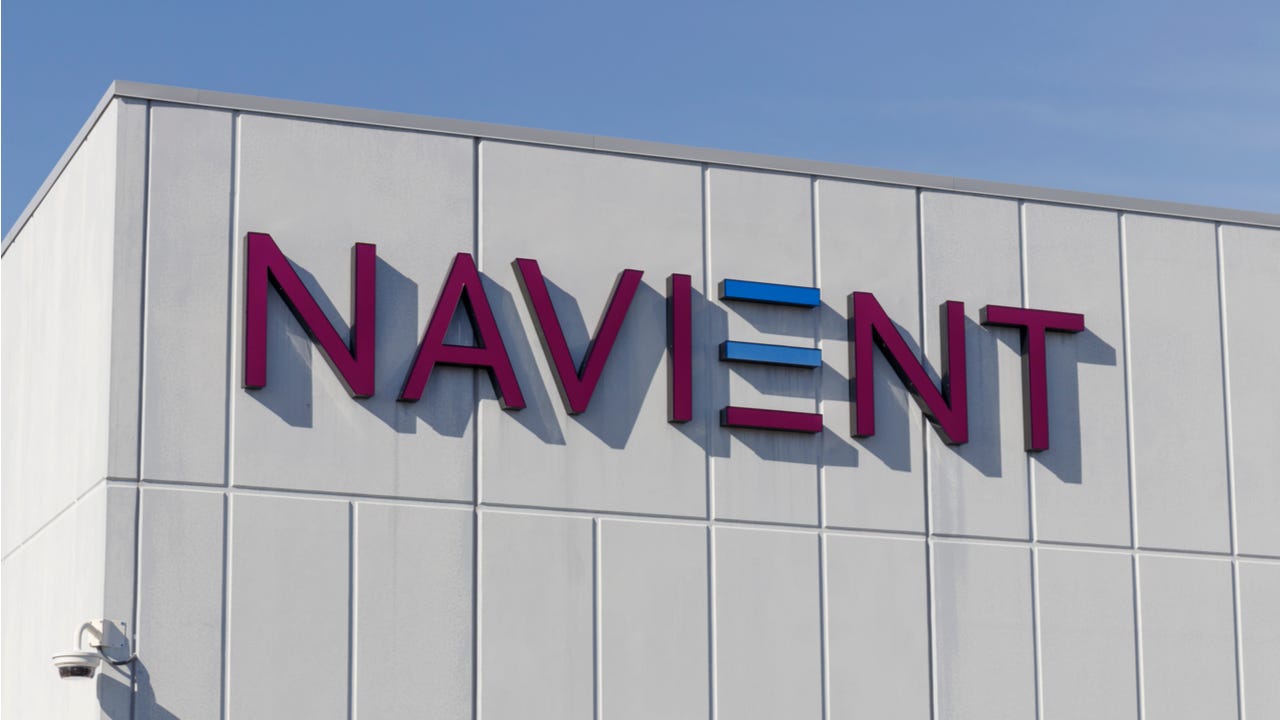What student loan borrowers should know about the Navient lawsuits

Navient is one of the largest student loan servicers in the country, with millions of borrowers using it to repay their federal and private student loans. However, a few lawsuits over the years have alleged harmful and deceptive practices, which could impact your student loans.
The servicer just reached a settlement for several of these lawsuits that will forgive more than $1 billion in student loans, but more relief could be available further down the line.
What are the Navient lawsuits?
Since 2017, Navient has seen its fair share of lawsuits. Here’s what to know about which lawsuits have been resolved and which are ongoing.
Settled: State lawsuits
Several states filed lawsuits against Navient over the years, citing unfair lending practices, deception and mismanagement of loan products. Attorneys general from these states claimed that, among other things, Navient steered borrowers into unnecessary forbearance instead of cheaper alternatives, purposely approved loans for borrowers unlikely to afford repayment and told borrowers that they owed more than they actually did.
On Jan. 13, 2022, Navient reached a $1.85 billion settlement agreement with 38 states and Washington, D.C., resolving outstanding litigation with those states. Under the settlement terms, Navient will be required to forgive $1.7 billion in private student loan balances for nearly 66,000 borrowers, primarily those who took out subprime loans to attend for-profit schools. Navient will also distribute individual restitution payments of $260 to approximately 350,000 federal borrowers who were placed into long-term forbearance.
Eligible private borrowers will receive a notice from Navient by July 2022, and federal borrowers should expect a postcard in the mail from the settlement administrator in spring 2020.
Ongoing: Consumer Financial Protection Bureau lawsuit
On Jan. 17, 2017, the Consumer Financial Protection Bureau filed a suit against Navient alleging that the servicer hurt borrowers by providing bad and sometimes false information, not processing payments correctly and not taking appropriate steps to rectify situations when borrowers brought up these complaints.
The CFPB also alleges that Navient didn’t allow some borrowers to discharge their loans when they qualified for it. “Severely and permanently disabled borrowers with federal student loans, including veterans whose disability is connected to their military service, have a right to seek loan forgiveness under the federal Total and Permanent Disability discharge program,” the CFPB says. “Navient misreported to the credit reporting companies that borrowers who had their loans discharged under this program had defaulted on their loans when they had not.”
Navient filed a motion to dismiss the suit in 2020, but the appeal failed. As of early 2022, the CFPB lawsuit is still ongoing.
How do the Navient lawsuits affect my student loans?
Thousands of borrowers will see their student loans impacted in one way or another due to the recent Navient settlement, whether through loan forgiveness, restitution payments or better customer service. Borrowers don’t need to do anything in order to receive the settlement restitution or forgiveness aside from checking and updating their residential address.
Navient has said that the recent settlement will primarily affect borrowers who took out loans for for-profit schools from 2002 to 2010 and defaulted on those loans. However, there’s still the ongoing CFPB suit that, if settled, could impact even more borrowers.
Does Navient service my student loans?
While Navient services millions of borrowers, it doesn’t service every borrower. In early 2022, it transferred its portfolio of federal student loans to Aidvantage, a servicing division of Maximus. The company now services only private student loans and privately held FFELP Loans.
You can check your servicer with the Department of Education if you have federal loans. The best way to see who services your private loans is to check your latest correspondence regarding your student loans. You can also find the names of all servicers on your credit reports, which you can access for free at AnnualCreditReport.com. This lets you see all your debt, including the ones that are delinquent, in default or paid off.
Next steps
If you think that your lender may be engaging in misleading or deceptive practices, here are a few steps you can take to protect yourself and your money.
- Review and update your loan details. Whether you’re on autopay or you haven’t been able to afford to make payments in awhile, you might not know what you’re on the hook for or even what types of loans you have. Since Navient has serviced both federal and private student loans, check what type you have before exploring your options.
- Explore alternatives on your own. You can look into different repayment options, like income-driven repayment plans, forgiveness or student loan refinancing. It’s important to know your options before talking to your loan servicer so you’re informed about different offers.
- Ask your servicer for options. Even if you’ve done all the research on your own, contacting your loan servicer is next. Ask it what you qualify for and how each option impacts repayment and what you’ll eventually repay over the life of your loan.
- If necessary, file a complaint. If you think that your loan servicer is causing you to pay more money than you think you owe or is otherwise misleading you, consider filing a formal complaint. You can do this with your lender, with your state’s attorney general or at the federal level: the U.S. Department of Education, Federal Trade Commission or CFPB. If you’re going to go this route, you’ll need documentation proving your case. Keep detailed notes and records of every phone call and correspondence with your lender.
- Keep your contact details up to date. If you think that you may be eligible for restitution payments or loan forgiveness from the latest Navient settlement, check that your current home address is correct to ensure that you get the information you need.
Learn more:
- Navient borrowers will receive $1.7 billion in student loan forgiveness
- Student loans getting transferred to a new servicer? Here’s what you need to know
- 8 student loan forgiveness programs that could erase your debt
Why we ask for feedback Your feedback helps us improve our content and services. It takes less than a minute to complete.
Your responses are anonymous and will only be used for improving our website.






